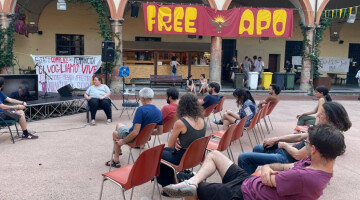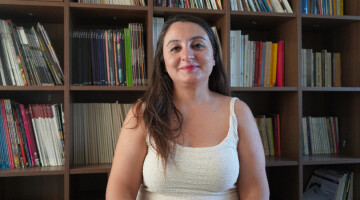In 1999, the General Assembly of the United Nations Educational, Scientific and Cultural Organization (UNESCO) adopted February 21 as “International Mother Language Day”, which has been celebrated as thus since 2000.
According to the 'Atlas of the World's Languages in Danger' published in March 2013 by UNESCO, which declared 2008 as the “International Year of Languages”, 40 percent of the world's 7,000 languages, i.e. 2,500 languages, are under threat of extinction.
As many as 230 languages have disappeared since the 1950s. 18 languages spoken in Turkey are in danger of disappearing. Among these languages is the Kirmançkî dialect of Kurdish.
Speaking to ANF about the policies of denial and assimilation against the Kurdish language, İbrahim Xelîl Taş, Director of the Mesopotamia Language and Culture Research Association (MED-DER), said that the assimilation policies continue in a deliberate manner.
Drawing attention to the state policy against the Kurdish language and culture, pursued since the establishment of the Republic of Turkey, Taş said: “Unfortunately, these policies have not changed until today. When we look at democratic states, we see how they preserve and protect different languages and cultures. When we look at Turkey, we see the fact that it has not provided any opportunities for Kurdish language and culture until today. Kurds have protected and spread their language by their own means. Before Turkey was founded, there were tens of thousands of languages, communities and cultures in Anatolia. All of these disappeared due to the state's assimilation policies. The Kurds, on the other hand, survived and preserved their language because they had a rich language and strong oral literature. Therefore, the Kurdish language has always preserved itself against all assimilation policies. Today, no matter what is done, it is impossible to destroy this language. The Kurdish language has stood on its own feet and no one has the power to destroy it now.”
Stating that Kurdish should finally become an official language and assimilation policies should thus be prevented, Taş said, “The Kurdish language will progress and grow once it has a status. So far, the state has not taken any steps towards this.”
Emphasizing that the Kurdish language should be used in all areas of life in order for it to become widespread, Taş said: “Kurdish is not the language of a political party or an institution, it is the language of the Kurdish people. People should protect their language and use it in all areas of life. Families in particular have a great responsibility in this regard. They should teach and speak their own language to their children. We should speak our language in every field. All politicians and academics should take responsibility and use the Kurdish language widely in their fields of work. Our language is the most important entity for us. We must work hard to protect our language.”















